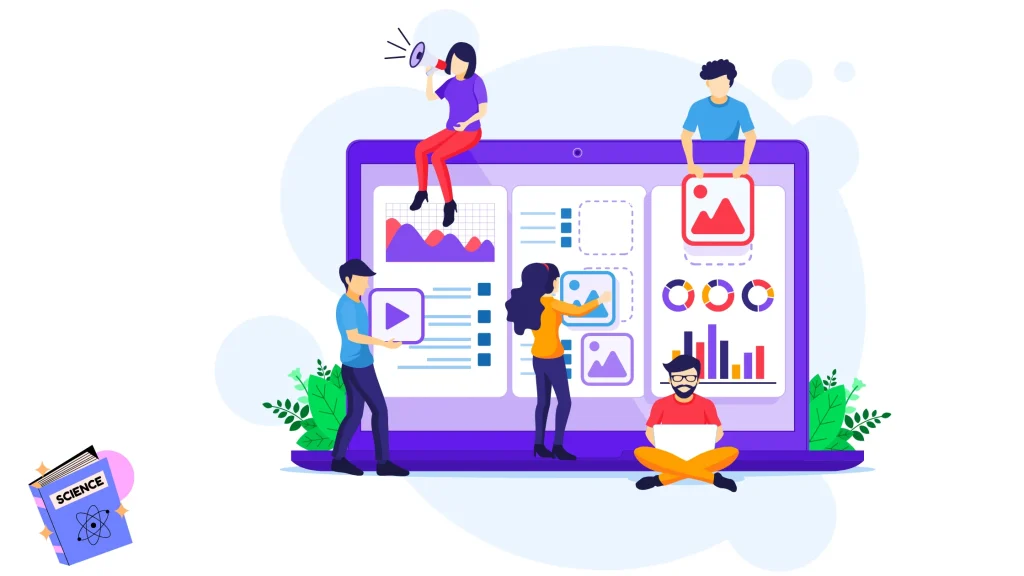Digital marketing in the life sciences sector is no longer just a trend; it’s a necessity. As the life sciences industry evolves, the need for targeted, effective digital marketing strategies has never been more crucial. Life sciences organizations need to adopt digital strategies. Advances in biotech and discoveries push them to meet marketing needs. These strategies help engage their audience and drive growth.
Life science marketing is a customized way to connect with healthcare pros, researchers, and patients online. Life sciences need a solid grasp of rules, market trends, and audiences’ wants. The life sciences marketing agency must be specialized and knowledgeable to be effective.
Key Strategies for Effective Life Sciences Marketing
Personalized Messaging in Life Sciences Marketing
One of the most effective digital marketing practices in the life sciences field is personalized messaging. In an industry where trust is key, it’s vital to deliver messages that meet the specific needs of each group. Whether targeting healthcare professionals, researchers, or patients, this approach builds a stronger connection.
By leveraging data analytics and insights, life sciences marketers can personalize content and digital campaigns in a way that resonates with the target audience. Personalized content drives engagement better. It addresses the target audience’s unique challenges, interests, and goals.
Omnichannel Marketing Approaches in Life Sciences
Omnichannel marketing has become a game-changer in the life sciences industry. It allows companies to meet their target audiences across various marketing channels, ensuring a consistent, seamless experience. Life science companies can connect with stakeholders through different touchpoints. They can use email marketing, social media, digital campaigns, and webinars.
The key to omnichannel success is using the right combination of digital channels to optimize the customer journey. With analytics tools, life sciences marketers can improve their strategies. This helps them reach the right people at the right time and through the right channels. This integrated marketing approach ensures that every interaction is part of a larger, cohesive strategy to build brand awareness and foster trust.
Leveraging Data and Analytics in Life Sciences Marketing
Data is at the heart of effective life science marketing. Companies must leverage data to make informed decisions and optimize their marketing campaigns in today’s digital landscape. Analytics tools show how customers behave, what they like, and how they shop. This helps marketers adjust their strategies for better results.
For instance, predictive analytics can help companies anticipate trends and adjust their digital marketing strategy accordingly. Life sciences companies can use data to understand what appeals to different audience segments. This allows them to create engaging content that boosts interest and increases conversions. Analytics can help marketers refine their strategies to achieve a higher return on investment (ROI).
Building Trust and Credibility in the Life Sciences Industry

Creating Trustworthy Content for Life Sciences Audiences
Content marketing is a cornerstone of life sciences digital marketing. However, content must be more than just informative; it must also be credible and trustworthy. Healthcare professionals and researchers rely on accurate, well-researched, scientifically backed information. As such, life sciences marketers must ensure that their content is tailored to the field.
Companies can build trust with their audience by collaborating with thought leaders and using authoritative sources and references. Life science marketing agencies help companies share complex science. They make tough information easier for everyone to understand.
Building Relationships Through Digital Channels
The ability to foster ongoing relationships with healthcare professionals and other stakeholders is a key component of life science marketing. Digital experiences like interactive webinars, live Q&A sessions, and personalized emails help life sciences groups connect meaningfully with their audience.
Organizations can use social media platforms, email marketing, and other digital channels to regularly engage with their audience, answer questions, offer solutions, and showcase their expertise. This consistent engagement is essential for building lasting trust.
Trends and Innovations in Life Sciences Digital Marketing
Market Trends Shaping the Future of Life Sciences Marketing
As the life sciences industry continues to evolve, several emerging market trends shape how organizations approach digital marketing. Companies must stay ahead with AI tools, predictive analytics, influencer marketing, and social media. This helps them keep their competitive edge.
AI tools are revolutionizing content strategies by enabling companies to generate personalized content more efficiently. Predictive analytics helps marketers see market changes ahead of time. This way, they can improve their strategy. It ensures digital campaigns meet the current and future needs of the life sciences field.
Moreover, life sciences marketers must adapt their strategies to the growing reliance on mobile and social media channels. Platforms like LinkedIn, Twitter, and Instagram are crucial for connecting with professionals and patients. So, companies must stay active online.
Integrated Marketing Practices for Life Sciences
One of the most effective ways for life sciences organizations to boost their digital marketing efforts is by embracing integrated marketing. Mixing traditional marketing with digital strategies helps companies share a clear message everywhere.
This strategy allows for more targeted messaging, improves brand visibility, and streamlines marketing initiatives. Integrated marketing uses SEO, content marketing, and social media marketing. This way, all tactics work together to reach marketing goals.
Overcoming Marketing Challenges in the Life Sciences Industry

Navigating Regulatory Compliance in Digital Marketing
One big challenge for life sciences organizations in digital marketing is compliance. They must follow industry rules like FDA regulations and HIPAA standards. In life science marketing, companies need to be careful. They must communicate sensitive information properly. This way, they avoid breaking privacy and legal rules.
A marketing consultant or life science agency can help life science companies. They navigate these complexities. They also make sure all digital campaigns follow the rules. This includes understanding the dos and don’ts of medical claims, data privacy, and ethical considerations in marketing.
Personalizing Messaging Without Crossing Ethical Boundaries
While personalized messaging is crucial in life sciences marketing, it’s also important to balance personalization and privacy. Life science companies should customize their messages for each person. They need to respect ethical limits and follow privacy laws.
By utilizing analytics tools and data analytics, life sciences marketers can ensure that content is appropriately personalized and aligned with the audience’s preferences.
How to Choose the Right Life Sciences Marketing Agency
Key Qualities to Look for in a Life Sciences Marketing Agency
When selecting a life science marketing agency, companies must consider several factors. The agency must have experience in the life sciences industry and an in-depth understanding of its challenges and nuances. We offer targeted digital strategies, content marketing, and social media campaigns. These are designed to engage professionals in healthcare and biotech.
The Role of a Marketing Agency in Driving Growth for Life Sciences Brands
A skilled marketing agency helps life sciences groups improve their digital marketing. They create custom content strategies, boost SEO, and ensure they follow industry rules. The right agency can help life sciences companies grow online. They use advanced analytics and data insights to connect better with their audience.
Also Read: London Digital Marketing Crouch End: Unlock Explosive Growth
The Future of Life Sciences Digital Marketing
The digital transformation within the life sciences sector is ongoing, with new technologies, tools, and strategies always emerging. Life sciences marketers must adapt to changes. Companies should use modern digital marketing solutions.
They must also optimize their campaigns and use data analytics to remain competitive. Life science companies need to adapt. They should use personalized messaging, omnichannel marketing, and integrated strategies. This helps them meet their audience’s needs and manage the challenges of a regulated industry.